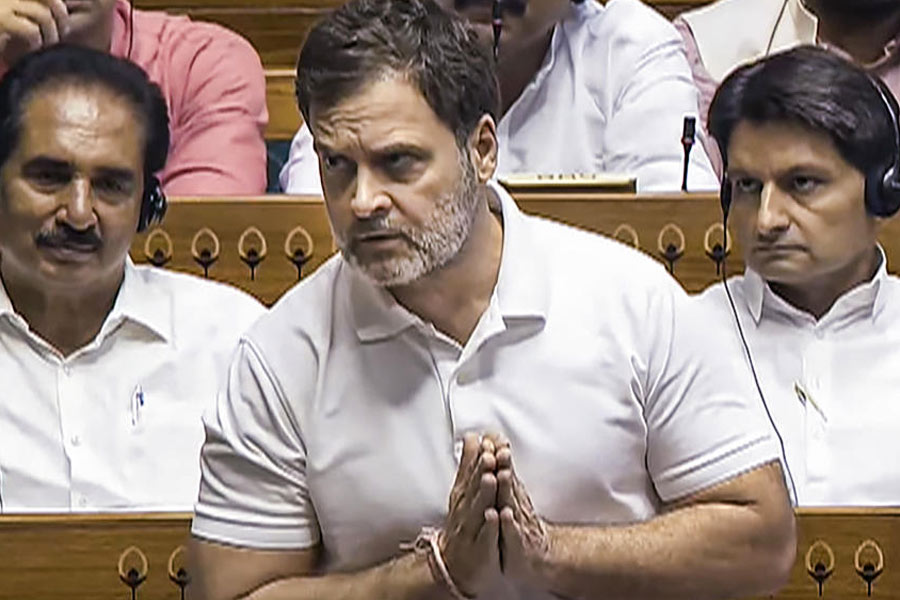Two speeches in Parliament by the two tallest leaders on opposite — opposing — sides underlined their respective differences in politics and philosophy. Speaking on the motion of thanks to the president’s address, the prime minister combined the personal with the political in his signature and, by now, cliched style. He mocked Rahul Gandhi — the leader of the Opposition had delivered a fiery speech earlier — as infantile, was dismissive of the Congress’s present electoral kitty, and reiterated the familiar claims of his government’s commitment to end corruption, facilitate development, and ensure justice without appeasement. India, now experiencing the third term of Narendra Modi, is familiar with this rhetoric. What was surprising though was
Mr Modi’s refusal to engage with — indeed, counter — the broader charges that were directed at the regime by Mr Gandhi in a speech that contrasted with that of the prime minister both in substance and vision. Mr Gandhi’s political thrusts — they even forced the mercurial Union home minister to plead for cover — were not unfamiliar. He targeted Mr Modi’s government for failing Manipur, introducing the controversial Agnipath scheme, engineering division, spreading fear, and — this got the government’s goat — politicising religion. The Bharatiya Janata Party responded — typically — by accusing Mr Gandhi of insulting Hindus. But what made Mr Gandhi’s speech stand out was his ability to offer a vision that the nation and its minders should embrace by way of a moral map. For what Mr Gandhi espoused — freedom of the mind from fear — is fundamental to the survival and the blooming of democracy. Such a kernel of fearlessness goes on to bear the fruit of a citizenry that is unafraid to ask for — demand — accountability from the powers that be irrespective of political colour. This culture of scrutiny, of institutions and leaders, has, arguably, been weakened during the reign of Mr Modi. In demanding its resurrection, Mr Gandhi was merely voicing the wish of the people who have given a reduced mandate to Mr Modi’s muscular government.
The 18th Lok Sabha differs substantially from its last two avatars in one important aspect. The Opposition, buoyed by numbers, has rediscovered its voice. Spirited verbal clashes, therefore, are to be expected when the House is in session. Both sides, the government and the Opposition, must ensure that these exchanges do not violate established codes of conduct of the House. The nation can do with competitive but civilised public speeches and debates that lend democracy its depth and colour.











